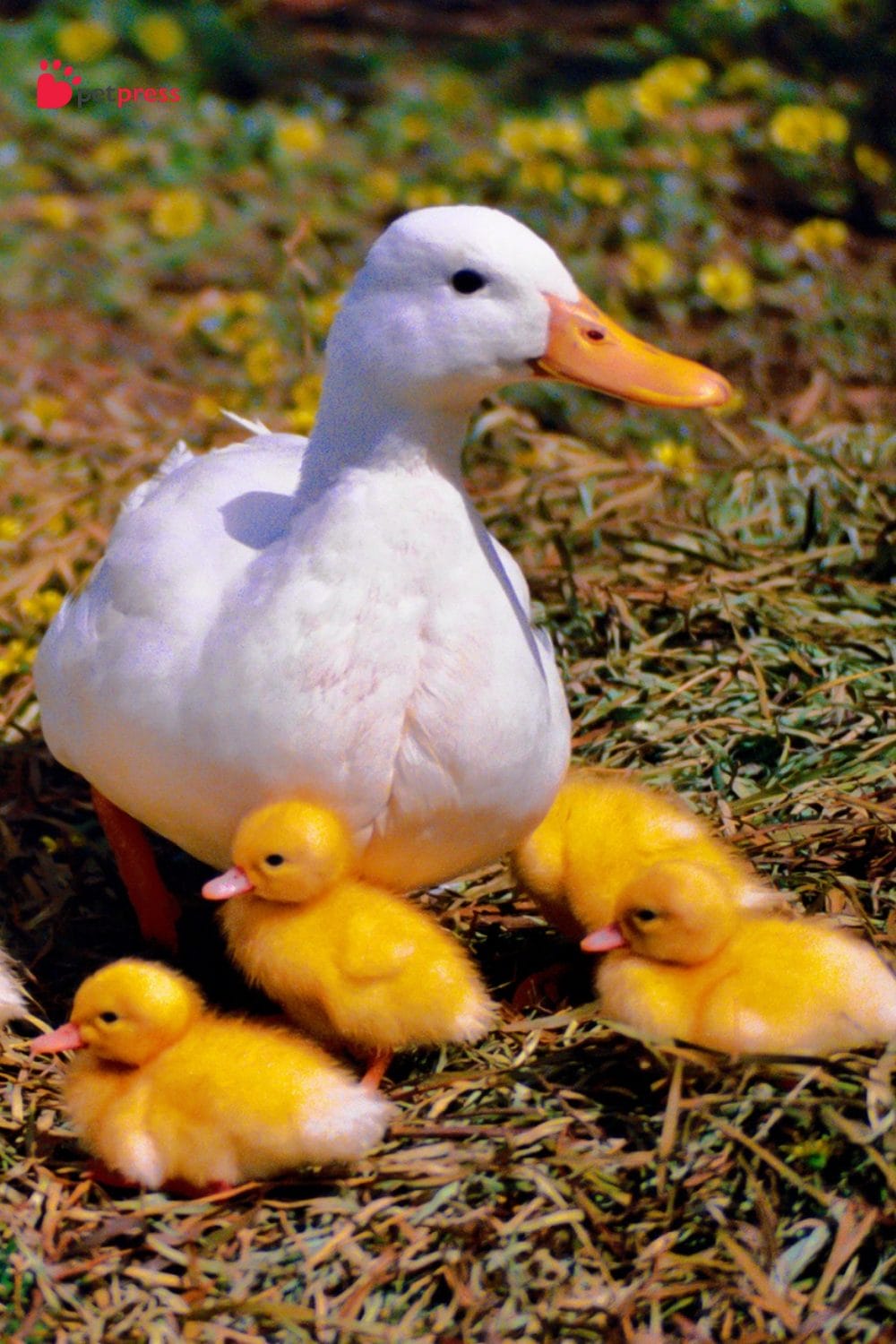
Did you know that some places have really strange pet laws around the world? From naming restrictions to special walking rules, every country has unique ways to keep pets and people safe. These rules can seem funny, but they’re important for everyone’s well-being.
Every country crafts its own rules to safeguard both pets and people. Yet, some of these pet laws around the world are so unusual they might just make you laugh or scratch your head in wonder. From pets that must be walked a specific number of times a day to others that can’t be named after historical figures, these unique regulations show how different cultures view and treat their animal companions.
Let’s travel across the globe and uncover some of the quirkiest pet laws around the world. You’ll be amazed at what you find! Whether it’s cats needing tail lights in Italy or prohibition against barking dogs after dark in the USA, these laws show the diverse ways communities care for their furry, feathered, and scaly residents.
1. Lions at the Cinema? Not in the USA!
Imagine heading to your local movie theater and spotting a lion in the queue for popcorn! In Baltimore, Maryland, such a scenario is strictly off-limits. This unusual pet law forbids bringing lions to the cinema, ensuring moviegoers can watch films without fearing a big cat might join them.
This law might sound funny, but it serves an important purpose. Lions, being wild and potentially dangerous animals, are not suitable companions for public places like movie theaters. The rule keeps both people and the majestic animals safe, avoiding any possible mishaps during a movie showing.
2. Nighttime Lights for Cats in Italy
In Milan, Italy, there’s a quirky rule that cat owners need to know about. Cats that go outdoors at night are required to wear tail lights. This law ensures they’re clearly visible to drivers, reducing the risk of accidents on dark streets.
The use of tail lights on cats might sound unusual at first. However, this unique regulation is all about pet safety and road safety. It prevents potential accidents by making these small, fast-moving pets visible to motorists.
Cat safety tips like these are not just for Italian cat owners. They serve as a reminder to all pet owners to consider the visibility of their pets during nighttime strolls. Whether by reflective collars or small lights, keeping pets visible is a crucial safety step in any country.
3. No Barking After Dark in Little Rock, Arkansas
In Little Rock, Arkansas, there’s a unique rule for dog owners. No barking is allowed after 6 PM. This pet noise regulation helps keep the evenings peaceful for all residents.
Quiet hours for dogs might seem strict, but they encourage responsible pet ownership. Owners are prompted to ensure their pets are calm and content as evening sets in, reducing stress for the animals and neighbors alike.
4. No Napoleonic Pigs in France
In France, naming your pig “Napoleon” is off-limits. This unique law was put in place as a nod to the country’s famous leader, Napoleon Bonaparte. It’s a way of respecting his legacy and ensuring that his name isn’t used lightly, especially not on farm animals.
Seeing a pig named after such a prominent historical figure might seem humorous, but in France, it’s taken quite seriously. This rule highlights how deeply the French value their history and the figures who have shaped it. It’s an excellent example of how cultural respect and reverence are reflected in pet laws around the world.

5. Household Pet Limits in Tokyo, Japan
In Tokyo, Japan, pet ownership comes with a unique limitation, especially concerning residents living in apartments. Most apartment complexes enforce a rule that restricts families to just two pets per household. This rule ensures that every animal has enough room to live comfortably without overcrowding the limited space often found in city living environments.
The regulation not only makes life more comfortable for the pets but also helps in maintaining a harmonious living situation for all residents. It’s a thoughtful balance that respects both the pets’ well-being and the community’s needs. This policy highlights how densely populated cities like Tokyo manage pet ownership responsibly.
For potential pet owners in Tokyo, it’s essential to consider the type of animals they wish to adopt. Smaller breeds or animals that are known to thrive in indoor environments might be more suitable. Ensuring that your pets can live happily within these guidelines will make urban pet keeping a positive experience for everyone involved.
6. Swedish Pets Need Thrice-Daily Walks
In Sweden, taking care of a pet means ensuring they get plenty of exercise. The law requires that all pets, particularly dogs, are walked at least three times a day. This rule helps pets stay active and healthy, reducing issues like obesity and boredom.
Walking a dog multiple times daily not only benefits their physical health but also supports their mental well-being. Regular walks help to stimulate a dog’s mind, allowing them to explore new environments and sounds. It’s a great way for pets to release excess energy and remain calm at home.
7. Keep It Down, Madrid Pets
In the bustling city of Madrid, Spain, there’s a special rule for pet owners that helps maintain a peaceful community atmosphere. If your pet is too noisy, you might find yourself paying a fine. This noise control regulation for pets in Madrid ensures that everyone, including neighbors, enjoys a serene living environment.
The law specifically targets loud, continuous noises that disturb the peace, particularly during the city’s quiet hours. Whether it’s a dog who loves to bark at night or a parrot mimicking sounds loudly, pet owners are responsible for their pets’ vocalizations. By controlling noise levels, Madrid aims to foster respectful and considerate living spaces for all its residents.
8. One Dog Per Household in Seoul, South Korea
In Seoul, South Korea, a unique pet law restricts each household to having just one dog. This regulation aims to reduce noise and improve cleanliness in densely populated areas. By limiting the number of dogs per home, the city ensures quieter, cleaner neighborhoods.
This one dog policy reflects Seoul’s efforts to manage its urban environment efficiently. With high population density, multiple dogs in a single household could lead to complaints and sanitation issues. Thus, this law helps maintain peace among residents.
For dog lovers who wish to adopt in Seoul, this rule might seem restrictive. However, it encourages potential pet owners to consider their living conditions and ability to provide the best care. This thoughtful approach ensures that each dog gets the attention and space it deserves.
9. US Playgrounds Are Pet-Free Zones
In many parts of the United States, pets are not allowed on playgrounds. This rule helps keep the play areas clean and safe for kids. It makes sure that children can enjoy their playtime without any interruptions or risks from animals.
Keeping playgrounds pet-free also reduces allergies among children. Some kids are allergic to pet fur or dander, which can be troublesome. By keeping these areas free of pets, it ensures all kids can have fun without health concerns.
Additionally, this rule minimizes the risk of accidents or injuries. Playful pets can unintentionally scratch or bump into children. With pets out of the zone, the chance of such incidents is greatly lowered.

10. Companion Laws for Guinea Pigs in Switzerland
In Switzerland, the law takes the companionship needs of pets very seriously, especially for guinea pigs. This country has a unique regulation that insists on having at least two guinea pigs together. This is because guinea pigs are incredibly social animals and can suffer from loneliness if kept alone.
Loneliness in guinea pigs is more than just sad; it can lead to significant health issues. These furry friends thrive on interaction with others of their kind. They communicate, play, and even groom each other, which is crucial for their emotional and physical well-being.
11. Fish Curfew in Italy
In Rome, Italy, the welfare of fish is taken seriously, leading to specific pet laws that govern how they should be housed. Small fish bowls are outlawed in the city, as they are deemed cruel and inadequate for the health and well-being of the fish. Instead, owners must keep their fish in full-sized aquariums that provide ample space for swimming and proper filtration.
This law reflects a broader understanding and respect for aquatic life, acknowledging that fish, like all pets, have specific needs that must be met to ensure their health. Full-sized aquariums not only allow fish more room to move but also better mimic their natural habitats. This environment improves their overall health, reduces stress, and increases their lifespan.
12. No Drunk Pets in Alaska, USA
In Fairbanks, Alaska, there’s a rather unusual but important rule among the pet laws — it’s illegal to give any alcoholic beverages to moose or any other animals. This law ensures the safety and well-being of wildlife and domestic pets, protecting them from harm caused by inappropriate human behaviors.
Alcohol can be extremely harmful to animals, affecting their health and behavior in dangerous ways. Alaska’s specific mention of moose highlights the state’s concern for its unique wildlife, as well as the interactions between these large creatures and local residents.
13. Singing Pets in North Carolina, USA
In Charlotte, North Carolina, pet laws include a specific regulation aimed at maintaining neighborhood peace by controlling noise levels. This includes a unique stipulation that pets, particularly those that can produce vocal sounds like birds or dogs, must not sing or bark too loudly. This law helps prevent pets from disturbing the peace with excessive noise, ensuring a quiet environment for all community members.
This regulation is particularly important in densely populated areas where neighbors live close to one another. Excessive noise from pets can lead to disturbances and conflicts among residents. By enforcing this rule, Charlotte promotes a harmonious living environment and encourages pet owners to be more mindful of their animals’ behavior.
14. Cat Curfew in Australia
In several parts of Australia, pet laws include a night-time curfew for cats. This regulation is designed to protect the local wildlife, which can be vulnerable to predation by domestic cats. These curfews restrict cats from roaming freely at night, thereby helping to preserve the native animal populations.
This law reflects Australia’s commitment to biodiversity and the protection of its unique ecosystems. Cats are natural hunters, and without such regulations, they could pose a significant threat to species that are already at risk. By keeping cats indoors at night, not only is wildlife protected, but cats are also safeguarded from various nocturnal hazards.

15. Elephant Parking in Florida, USA
In Sarasota, Florida, there’s an unusually specific law among the pet laws that covers quite an unexpected scenario: if someone parks an elephant at a parking meter, they must pay the parking fee just as they would for a vehicle. This quirky regulation might seem humorous, but it illustrates the city’s approach to public space usage and animal presence in urban areas.
This law ensures that larger animals, like elephants, which are unlikely but not impossible to find in urban settings, are accounted for in city regulations. It treats these large animals similarly to vehicles when they occupy parking spaces, ensuring that no one takes advantage of public resources without contributing their fair share.
16. Ducky Hairstyles in Kentucky, USA
In Kentucky, there’s a peculiar stipulation among pet laws regarding the sale of ducklings. It is illegal to dye a duckling blue—or any artificial color—and then offer it for sale unless there are more than six ducklings being sold at a time. This law aims to regulate and restrict the practices of altering the appearance of young animals for commercial purposes.
This regulation not only protects the well-being of the ducklings by discouraging unnecessary cosmetic changes but also helps to prevent impulse purchases of animals by making them less ‘novelty’ items. Kentucky’s law shows a concern for the ethical treatment and marketing of pets, ensuring that these young animals are not treated merely as objects for aesthetic amusement.
17. Parrot Noise Regulations in California, USA
In Sunnyvale, California, pet laws address the specific challenges that come with owning parrots, known for their loud and sometimes disruptive squawks. The law mandates that parrots must not squawk loudly enough to disturb the peace of the neighborhood. This helps ensure that these vibrant, vocal birds do not become a nuisance to those living nearby.
This regulation emphasizes the importance of considerate pet ownership and maintaining a quiet residential environment. By setting clear boundaries on noise levels, Sunnyvale aims to balance the joys of pet ownership with the rights of community members to enjoy a peaceful living space.
18. No Black Cats on Halloween in Italy
In Italy, special pet laws are in place to protect black cats, particularly during Halloween. Due to longstanding superstitions that associate black cats with bad luck, these laws mandate that black cats must remain indoors on this holiday to safeguard them from potential harm. This precaution helps prevent any mishaps that may arise from superstitious beliefs.
This legislation reflects a proactive approach toward animal protection, recognizing the dangers that superstitions can pose to specific animals. By keeping black cats indoors during Halloween, Italy ensures their safety and counters the negative stereotypes that could lead to mistreatment.
19. No Walking a Cow Down the Road at Midday in the UK
In the United Kingdom, there exists a peculiar regulation among pet laws that prohibits the herding of cows down public roads during certain hours on Sundays. This law is designed to prevent disruptions and maintain public order during times when many people might be heading to or returning from church services, events, or other Sunday activities.
This restriction on moving cows helps ensure that roads remain clear and safe for pedestrian and vehicular traffic during these peak hours. By limiting when cows can be walked through public spaces, the law also minimizes potential traffic issues and enhances safety for both the animals and the public.
20. Mandatory Collars for Tortoises in Greece
In Athens, Greece, there’s a distinctive directive within the pet laws that requires pet tortoises to wear collars when they are taken out in public. This regulation is aimed at making these slow-moving pets easy to identify and manage, preventing them from becoming lost or creating unexpected roadblocks in busy areas.
The use of collars on tortoises not only helps in keeping track of these pets but also ensures their safety when they are outside their home environment. It’s an innovative approach to pet management that addresses the unique challenges posed by owning slower, less conventional pets like tortoises.
Conclusion: Embrace the Unusual
As we’ve explored these astonishing pet laws around the world, it’s clear that every community has its own unique approach to the care and management of animals. These laws may seem unusual or even humorous to outsiders, but they play a critical role in maintaining the balance between human communities and our beloved pets. They reflect the diverse cultural attitudes and practical considerations that influence how societies interact with animals.
Understanding and respecting these laws is essential for anyone who travels with their pets or is considering moving abroad. Knowing the local regulations can prevent potential legal issues and help pet owners integrate more smoothly into their new environments. Moreover, these laws are an opportunity to learn about and appreciate the different ways in which societies value and protect their animals.
So, the next time you come across a pet law that makes you raise an eyebrow, remember that it’s a part of what makes that place unique. Let’s continue to explore, understand, and celebrate the wide world of pet laws around the world — each one has a story to tell and a lesson to teach.
FAQs
Some countries implement these laws to maintain respect and dignity for historical figures and cultural symbols. It’s a way to preserve national heritage and prevent perceived disrespect.
Yes, it is! Switzerland’s laws require that social animals like guinea pigs must have at least one companion to prevent loneliness and promote psychological well-being.
In Sweden, the law requires that dogs (and cats) be walked a minimum of three times a day. It doesn’t specify times, but the frequency is meant to ensure pets are well-exercised and happy.
Always research and understand the local pet regulations before you travel. This can prevent any legal issues and ensure that both you and your pet have a safe and enjoyable trip. Contacting local animal agencies or looking up online resources can be very helpful.
Cities enforce pet noise laws to ensure a peaceful environment for all residents. These laws help prevent disturbances caused by excessively loud pets, such as dogs barking late at night.
- Does Cat Litter Melt Ice? The Complete Guide to Winter Safety - January 30, 2026
- Happy Tail Dogs: Understanding This Common Canine Condition - January 29, 2026
- How Cold Can Outdoor Cats Handle? Feline Winter Safety - January 27, 2026


GIPHY App Key not set. Please check settings